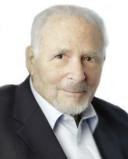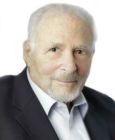Deception
Is Snowden Lying?
On Edward Snowden's recent NBC interview with Brian Williams.
Posted June 12, 2014
Many readers have asked whether Snowden was lying in his recent NBC-TV interview, knowing I have worked for the government and corporations spotting lies by how someone behaves. When I attempt to evaluate truthfulness I need to be the one asking the questions, able to ask follow up questions, allowed as many hours as I need, and the person I am interviewing must not have had time to prepare or be coached. Even if these requirements were to be met, I maintain a strict policy: I never evaluate anyone involved in litigation. In our judicial system it is the responsibility of the jury not an expert to determine truthfulness, difficult as that often is when only yes/no questions can be asked, and there is plenty of time for answers to be prepared. So, under these circumstances, I simply cannot comment on Snowden’s veracity. Still, some of Snowden’s claims merit consideration.
Snowden claims longer and more serious employment than was previously revealed by the government, and many attempts to be a whistle-blower, which, he says, were met with resistance by the NSA. The next day after the NBCTV interview the NSA denied these claims, as did Senator Diane Feinstein, head of the Senate committee that oversees intelligence capabilities. We don’t know who to believe.
Snowden claims he would not be granted a fair, open trial with access to all the charges and witnesses against him if he were to return to the United States. That is probably true, because a public trial, or even a closed trial in which all the information against him were to be revealed, might help our enemies if they were to find out. This leaves Snowden in limbo, the resolution of which has not been suggested by anyone.
Snowden also said that our mobile phones can be turned on by the intelligence agencies of the industrialized world, without our knowledge or consent, to listen to what we are saying. No one has denied this claim! When I was a Fulbright lecturer at Leningrad State University in 1979, people whose homes I visited would immediately put their telephones in the bathroom, convinced that otherwise the KGB would hear what we said. Do we need to take the same precaution against the NSA?
No one is claiming Snowden forged the NSA documents he stole, which revealed previously unknown threats to privacy. I would like to see an impartial judicial authority, perhaps an international one, review those revelations, charged with suggesting regulations of whose privacy can be invaded without notice or consent. They might also consider how to resolve the question of whether there is any way for Snowden to get a fair trial, and if not how should the issue of whether he should be punished be resolved.
We need public discussion of the tradeoffs involved if and when privacy is invaded, to be certain the public knows what is being done, if not in every specific instance, then in general. If what I am suggesting is not feasible there must be some way to change where this matter presently stands – in a state of confusion about charges and countercharges.
For more on Privacy Invasion, read "Who Should Know How You Are Feeling?" by Paul Ekman featured on his blog, Face It!


